The real key to safe and successful weight loss is to adopt a healthy diet that suits your individual needs and that you can maintain for a long time.
Eating fewer calories than you burn each day is key when it comes to weight loss. Some foods like potato chips, frozen meals, and baked foods pack a high number of calories but lack important nutrients like protein, fibre, vitamins, and minerals.
Simply making a few simple changes in your diet can help you lose weight while improving your overall health.
The following dietary tips are healthy, realistic ways to get you back on track and headed towards your weight and fitness goals this year.
1. Cut Back on Sugars and Carbs
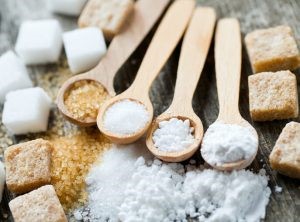
Reducing sugars and carbs from your diet will help to reduce your appetite and cravings making you eat much fewer calories. Giving up sugar (even just for three weeks) can help you start to ‘reset’ your palette so that you are less likely to even crave sweet foods. When this happens, your body starts feeding off of stored fats, instead of burning carbs for energy.
For best results, cut back on beverages like soda, sweetened tea, fruit juice, and sports drinks and opt for water or unsweetened coffee or tea instead.
Another benefit of cutting carbs is that it lowers insulin levels, causing your kidneys to shed excess sodium and water out of your body. This reduces bloat and unnecessary water weight.
2. Boost Your Protein Intake
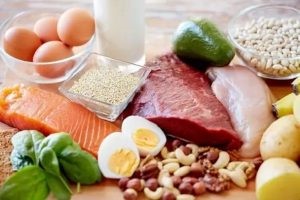
High protein diets boost metabolism and also reduce cravings. It also reduces the desire for late-night snacking by half, and make you so full that you automatically eat fewer calories per day. When it comes to losing weight, protein is the king of nutrients.
Meat, fish, and poultry are a few high protein foods that can be easily incorporated into a healthy weight loss diet.
3. Eat Healthy Fat
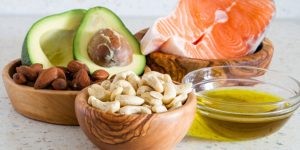
There are plenty of fat-laden foods that are not healthy, such as those that contain saturated and trans fats. But, there are also “good fats,” such as omega-3s, monounsaturated, and polyunsaturated fats.
Foods containing these good fats include avocados, walnuts, olive oil, salmon, tuna, dark chocolate, and flaxseed. These good fats have been proven to aid in weight loss.
4. Cut Back on Processed Foods or Refined Carbs

Refined carbs include sugars and grains that have had their fibre and other nutrients removed. Examples include white flour, pasta and bread. These types of foods are low in fibre, are digested quickly and only keep you full for a short period of time.
Instead, choose sources of complex carbohydrates like oats, ancient grains like quinoa and barley, or veggies like carrots and potatoes. They’ll help keep you fuller for longer and contain many more nutrients than refined sources of carbohydrates.
5. Fill Up On Fibre
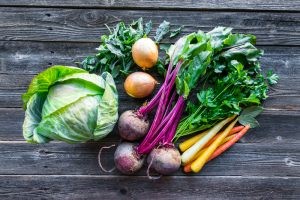
Fibre is found in healthy foods including vegetables, fruits, beans and whole grains. Different fruits and vegetables also provide nutrients and vitamins, which will not only help with weight loss but also overall health.
Some examples of Low Carb Vegetables are Cucumber, Spinach, Cabbage, Lettuce, Tomatoes and Broccoli.
Some studies have shown that simply eating more fibre-rich foods may help you lose weight and keep it off. Increasing your intake is as easy as adding beans to your salad, eating oats for breakfast or snacking on fibre-rich nuts and seed
6. Eat Breakfast
Breakfast is the most important meal of the day for a reason. In fact, experts say that breakfast is the best time to fill up on the most nutrients you’ll likely enjoy all day.
Having breakfast gives people needed nutrients and evens out the blood sugar so that people are less likely to binge on calorie dense junk later in the day.
7. Stay Hydrated

Not only is water obviously vital to surviving, but being properly hydrated helps prevent unnecessary snacking. Often people think that they are hungry, but they are really just thirsty.
Drinking at least half of your body weight in ounces of water a day is recommended. So, if you weigh for example 70kg, consuming at least 35 ounces (approximately four and half glasses) of water is a minimum requirement.
8. Avoid Fad Diets
A fad diet is a stylish weight-loss plan that promises dramatic results. Typically, these diets are not healthy and don’t result in long-term weight loss. Fad diets are usually promoted for their ability to help people lose weight fast.
However, these diets tend to be very restrictive and not easy to maintain. This leads to yo-yo dieting, where people lose pounds, only to gain them back.
While this cycle is common in those trying to shape up quickly, yo-yo dieting has been linked to a greater increase in body weight over time. They can also increase the risk of diabetes, heart disease, high blood pressure and metabolic syndrome
These diets may be tempting, but finding a sustainable, healthy eating plan that nourishes your body instead of depriving it is a much better choice.
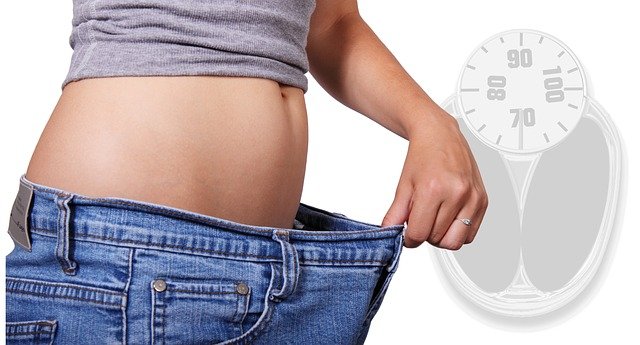
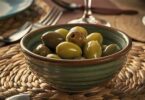

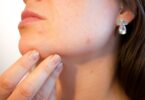



Leave a Comment